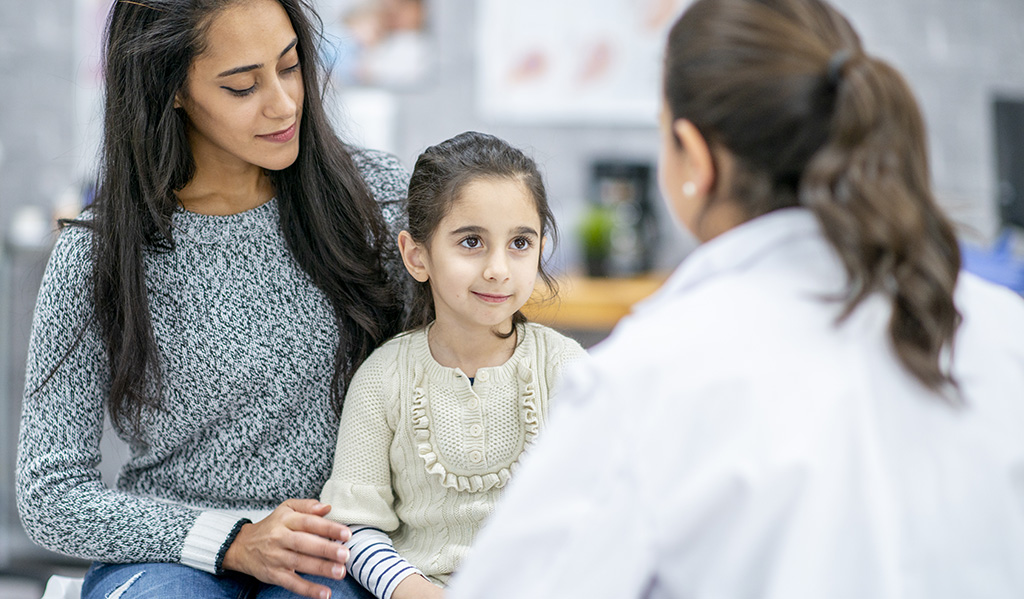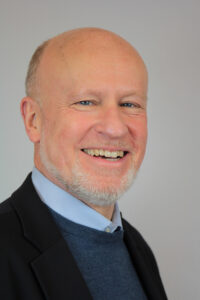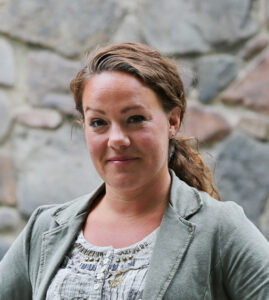
The Swedish national infrastructure Genomic Medicine Sweden (GMS) will receive an additional SEK 220 million investment. The investment will facilitate the continued introduction of precision medicine into Swedish healthcare, so that every individual in Sweden has access to more precise diagnostics and personalised care.

Mats Ulfendahl. Photo: Region Östergötland
The Swedish government is allocating an additional SEK 96 million via Sweden´s innovation agency Vinnova, an investment matched by SEK 124 million in co-financing from regional health authorities and universities.
“This is highly gratifying news from the Swedish government and Vinnova. We welcome this funding for GMS over the coming three years. At the same time, we are in dialogue with the Swedish regions and the Government Offices of Sweden regarding a long-term funding and governance model, something that is a necessity if precision medicine is to be truly put into action,” says Mats Ulfendahl, Chair of the GMS Steering Committee and Research Director at Region Östergötland.
Collaboration is key to success
Since its launch in 2018, GMS has built up a national organisation based on collaboration between healthcare, academia, industry, patient organisations and public authorities. Support within healthcare is a key issue if new diagnostic tools are to be introduced into healthcare and contribute to more personalised care and treatment, i.e., precision medicine.
The seven regional Genomic Medicine Centres established at Sweden´s university hospitals are the engine for introducing precision medicine into healthcare. This process is supported by a national genomics platform that will make it possible to store, analyse and share the enormous volumes of data generated in a harmonised and secure manner, thus making the knowledge more accessible. The SciLifeLab Clinical Genomics platform is also a central part of the technical development of new diagnostic tools.
Closer links to clinical studies
In a national collaboration, a new diagnostic toolkit for detecting genetic variations has been developed for use in healthcare nationwide. This includes broad gene panels and whole-genome sequencing for analysing cancers and rare diseases, which will contribute to improving the diagnosis, treatment and follow-up of patients. During the next phase of GMS, work will also focus on linking these refined genetic diagnostics to clinical studies, so that more patients have access to the increasing number of new, targeted therapies.

Maria Montefusco. Photo: Joakim KE Johansson
“As GMS’ infrastructure, expertise and capacity is implemented nationwide, correct diagnosis and treatment will be made available more promptly to more patients. This will make it easier to provide equitable care, even for persons with the rarest diseases and irrespective of where in the country one lives. This is not the case today,” says Maria Montefusco, Chair of Rare Diseases Sweden, the Swedish association of rare-disease patient organisations.
“The patient and next of kin perspective is a crucial part of GMS’ future development. The organisation is founded on real clinical and social needs for diagnosis and treatment. Our collaboration is off to a good start and we are looking forward to even greater involvement in the work of, for example, achieving data sharing and access to clinical studies,” continues Maria Montefusco.
An organisation with long-term sustainability
One important step towards ensuring that the introduction of precision medicine in healthcare is sustainable in the long term and does not lose momentum compared to the rest of the world is to establish GMS as a long-term, sustainable organisation. This issue is addressed in the government’s Research and Innovation Bill, which sees GMS as a “load-bearing function” if Sweden is to pioneer the implementation of precision medicine in healthcare services. The Swedish Agency for Health and Care Services Analysis also made the same point in a report published earlier this year.

Frida Lundmark. Photo: Lif
“GMS has accomplished a great deal during its first four years; now, together and in close collaboration, it is our responsibility to accelerate the introduction of precision medicine. The Partnership Group for Health and Life Sciences is currently preparing a roadmap for precision medicine in which one fundamental area is models for how central government and regional health authorities can collaborate on complex issues,” says Frida Lundmark, convener of the Partnership Group’s working group on precision medicine/ATMP and policy advisor to Lif, the trade association for the research-based pharmaceutical industry in Sweden.
Vinnova is co-financing the investment with an additional SEK 96 million to GMS for the period 2021–2024. Sweden’s seven regional health authorities with university hospitals and seven universities with medical faculties will be contributing SEK 124 million. This funding is intended to contribute to the ongoing introduction of precision medicine into healthcare, strengthening Swedish research and promoting new research and innovation collaborations between industry, healthcare and academia.

Darja Isaksson. Photo: Vinnova
“Genomic Medicine Sweden has built up an impressive network and IT infrastructure that is crucial to the development of precision medicine in Sweden and reinforces our position as an innovative country. Our intention with this investment is to contribute to continued collaboration that makes healthcare more preventive, accurate and equitable,” says Vinnova’s Director General Darja Isaksson.
- Coordinates the introduction of advanced gene sequencing into routine healthcare throughout Sweden.
- A national infrastructure consisting of Sweden’s seven regional health authorities with university hospitals and seven universities with medical faculties, in close collaboration with the national research centre SciLifeLab, patient organisations, industry and public authorities.
- Launched in 2018.
- Financed by Vinnova and the 14 partners in GMS, as well as separate grants from among others SciLifeLab, the Swedish Childhood Cancer Fund, and the the Ministry of Health and Social Affairs.
Photo: iStockphoto

